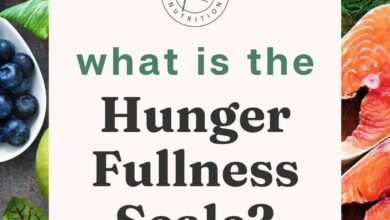Why Go Organic? – Nutrition Therapy Institute

For years, eating organic produce and grass-fed, pasture-raised meat seemed to be reserved for either the elite or self-identified flower children. But now we’re past the 70s – maybe not in clothing style, but in most other ways – eating organic not only seems to be gaining popularity but also legitimacy. Coming from the perspective of holistic health, let’s look at some of the facts behind emphasizing this level of quality in whole foods.
Defining Organic and Conventional Terms
What qualifies something to be organic? According to the USDA, produce can be called organic if “it was grown on soil that had no prohibited substances applied for three years prior to harvest.” Farmers use manure and compost to fertilize soil and insects, and birds, mating disruption, and traps for pest control. For weed management, they turn to crop rotation, weeding, and mulches.
Conventionally farmed produce incorporates chemical fertilizers to encourage growth and sprays pesticides for pest control. For weeds, they use herbicides.
For meat to wear the organic label, the USDA requires that “animals are raised in living conditions accommodating their natural behaviors (like the ability to graze on pasture), fed 100% organic feed and forage, and not administered antibiotics or hormones.”
Conventionally raised meat methods include providing growth hormones, medications, and antibiotics to animals.
Why Conventional?
In the 1950s and 1960s, the drive to produce more food for lower prices to fight poverty – known as the Green Revolution – brought about innovation in machinery, chemicals, and later, genetically modified seeds. A well-intentioned idea to engineer crops that produce more at a lower cost unfortunately brought about the necessity for more powerful fertilizers and pesticides. The chemicals used in these fertilizers and pesticides – such as arsenic, atrazine, and glyphosate – are not only nasty on pests but also on humans.
The FDA approved steroid hormone drugs also starting in the 1950s for use in animals sold for meat to increase their growth and metabolism. These hormones include natural and synthetic versions of estrogen, progesterone, and testosterone. Though deemed safe for humans “any time after the animal is treated,” studies since have revealed contradicting results. Since cows are fed foods that they don’t naturally eat in order to “beef” them up, manufacturers inject them with antibiotics to prevent inevitable infections due to their stomachs not being able to properly digest the foreign food.

Disoriented Hormones
Since our hormones are chemical messengers in the body, it’s best that they are oriented and balanced so they can regulate our systems appropriately. Chemicals in fertilizers and pesticides can act as “endocrine disruptors,” which means they disrupt the normal functioning of our endocrine – or hormone – system. Since our hormones govern the functions of all our systems – not just our reproductive system – these disruptors could potentially affect all aspects of our health.
One study indicates an increased risk of developing cancer for humans after ingesting beef injected with bovine growth hormone.
Other Harmful Effects
Arsenic is often found in pesticides and can even leach into groundwater. Research indicates a correlation between arsenic and impairing blood glucose regulation, which could lead to diabetes and obesity. One of the most commonly used pesticides, Atrazine, can mimic estrogen, which can cause an imbalance of sex hormones and even cancer. Glyphosate – another commonly used pesticide – can act as an antibiotic, which wipes our gut microbiome of its balance of commensal bacteria. In addition, it can lead to digestive problems and leaky gut syndrome by increasing gut permeability.
Assessing Cost
Though it is generally more expensive to buy organic, grass-fed, and pasture-raised whole foods, there are ways to make it work with most budgets. Consider these options:
- Buy in bulk wholesale at Costco or go in on one whole animal with friends and freeze the rest.
- Purchase directly from local farmers
- Find creative ways to cook less purchased cuts like organ meats (these cuts are also nutritious!)
- Environmental Working Group (EWG)’s Clean Fifteen lists produce with fewer amounts of pesticides for the current year’s crops
- EWG’s Dirty Dozen lists produce to prioritize buying organic due to high levels of pesticides for the current year’s crops
- Misfits Market offers organic produce for less
Keeping Standards High
Some products already wearing the organic label can cut corners in quality. Organizations like the Cornucopia Institute seek to act as a watchdog within the organic industry to ensure farmers live up to the label’s standards. Their research goes in-depth on topics ranging from organic snack bars to investigating fraudulent organic imports. Their scorecards are great tools to assess which brands of eggs, dairy, poultry, and beef are likely to meet the highest standards for the organic label. Check back for an upcoming NTI PodTalk with Cornucopia Institute.
Whether you are ready to embrace organic foods or see them with much trepidation, getting the facts is a great start. Stepping into the grocery store already informed about what’s really in the foods you choose can be empowering. Unlike dieting, eating quality, clean foods is a lifestyle that requires a long-term investment and has the potential to prevent future medical bills.
About the author: Lisa (Driscoll) Lopes is a certified Nutrition Therapist Master through NTI’s Nutrition Therapist Master Program. Having studied journalism and vocal performance in undergrad, she enjoys using her voice to share the benefits of living a holistic, integrated lifestyle in writing. You can find more of her writing in the Baltimore Sun, Classical Singer Magazine, Capital News Service, and FOCUS blog.
Image Sources:
- Vegetables Stall by PhotoMIX Company from Pexels
- Infographic by Lisa Lopes on Canva
- Three Black-and-white Cows by Matthias Zomer from Pexels
Source link
#Organic #Nutrition #Therapy #Institute



